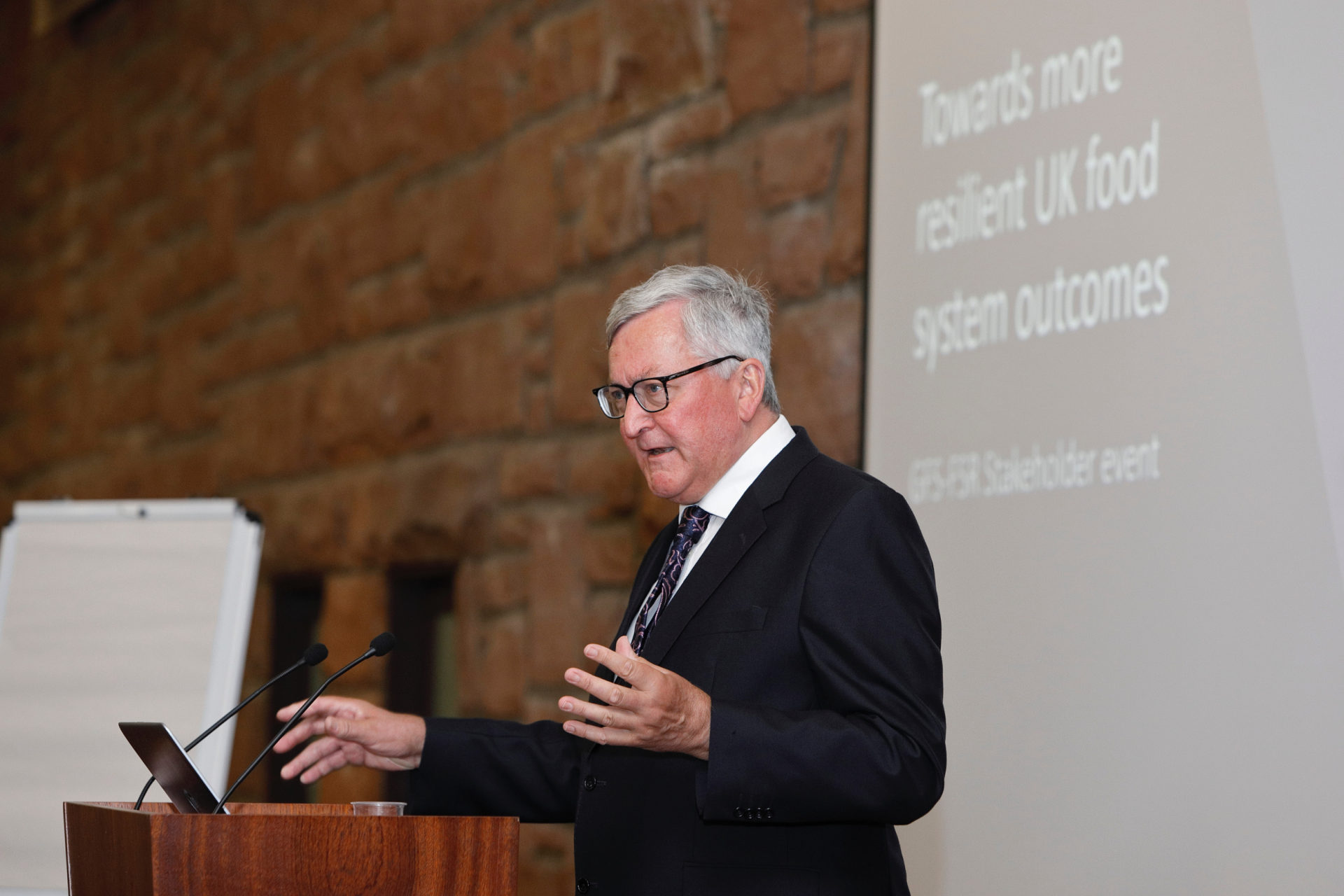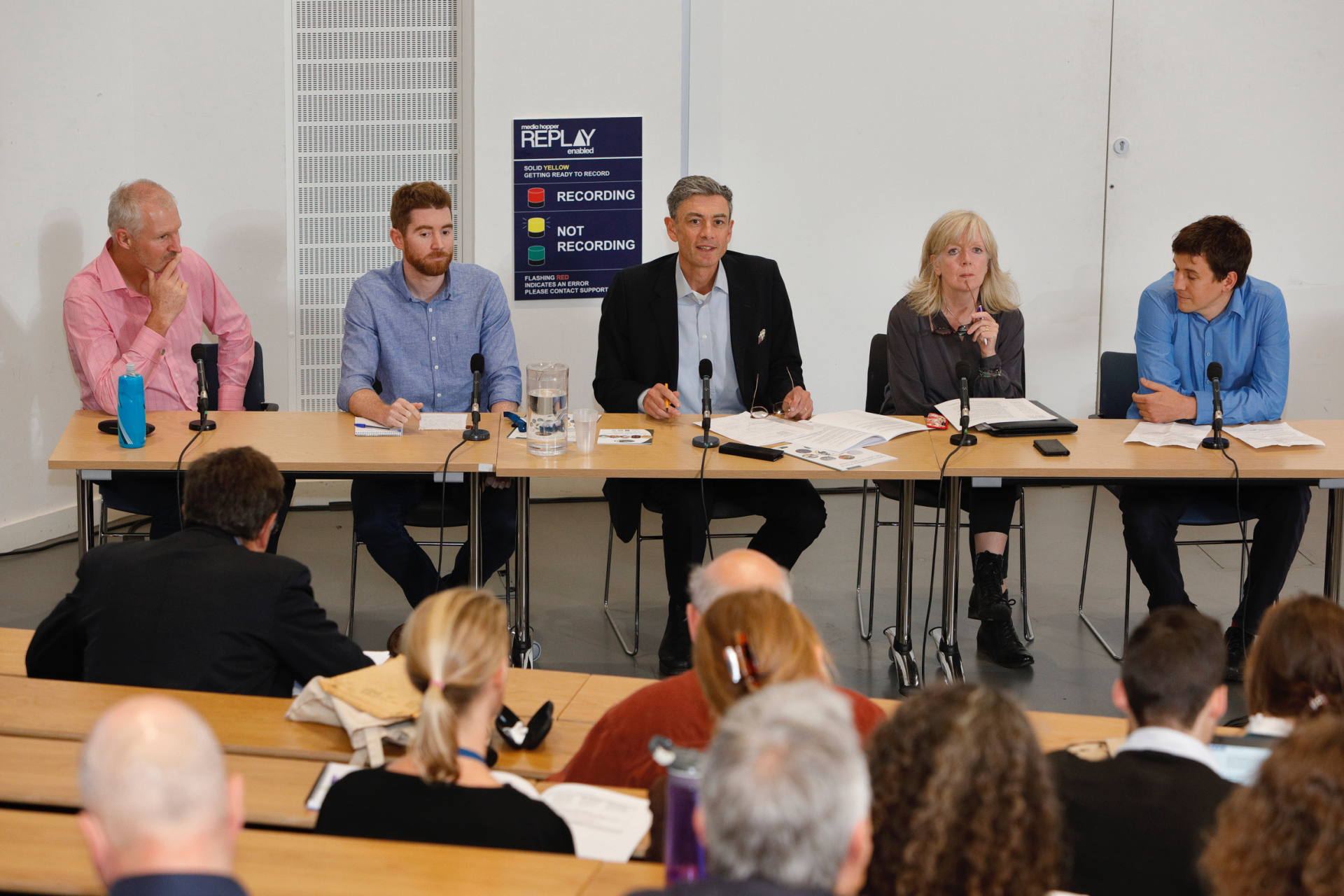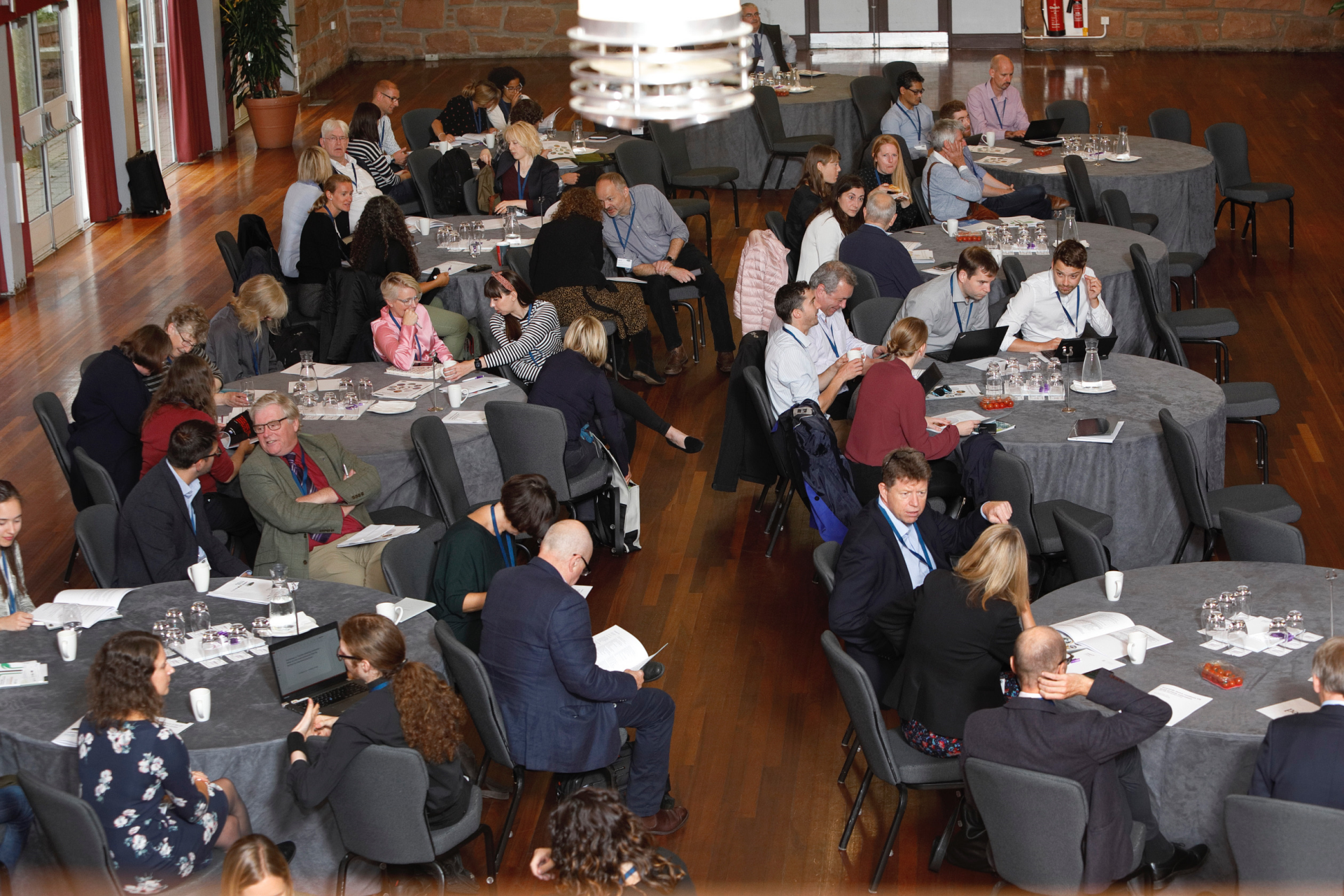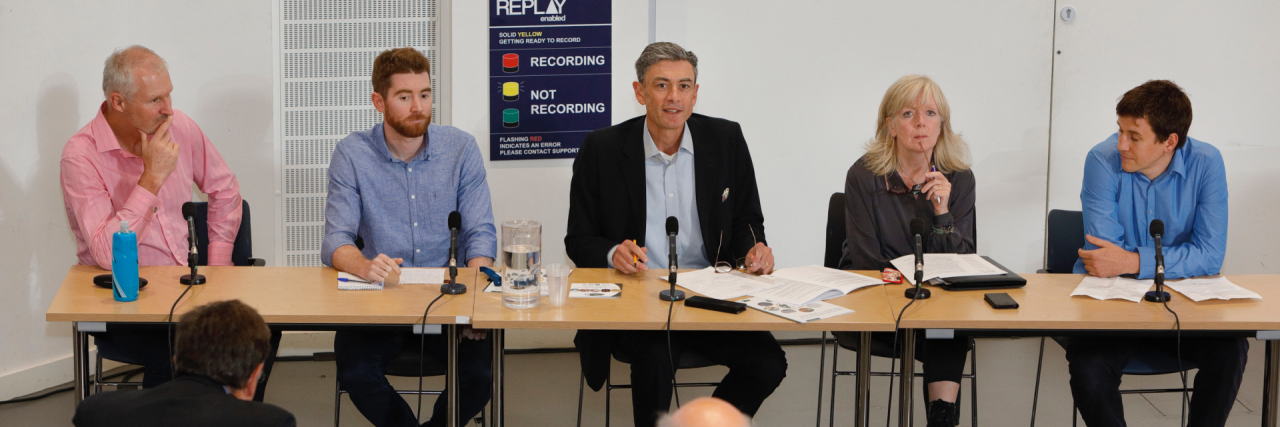The growing call for food systems actors to work together for transformation resounded at a recent stakeholder event held by the GFS research programme ‘Resilience of the UK Food System in a Global Context’ (GFS-FSR). The two-day event, Towards more resilient UK food system outcomes, took place at the University of Edinburgh on 4-5 September 2019 and drew a wide range of stakeholders from across government, academia, NGOs and industry

Scottish politician Fergus Ewing, MSP Cabinet Secretary for the Rural Economy, took to the stage in the first session, stressing the importance of the food industry working together as ‘Team Scotland’ to make a contribution to people’s lives, the economy and the environment. Pete Ritchie, Executive Director of Edinburgh-based NGO Nourish Scotland stresses the importance of collaboration, citing his experience as owner of Whitmuir Organic Farm, a 54-hectare mixed upland farm south of Edinburgh.
The theme was echoed across 13 interactive workshops, all co-delivered by researchers from the GFS-FSR projects and stakeholders from organisations such as Defra, the National Farmers Union, 3Keel and Obesity Action Scotland. The sessions challenged delegates to reflect on areas such as innovative production methods, the resilience of supply chains and the consumer view of the food system. In one workshop, delegates were tasked with creating a table top game that could facilitate better understanding between different food system actors, ranging from government to retailers and processors.
The event also highlighted some innovative food system partnerships that have formed to tackle food system challenges. In a public debate that was held as part of Scottish Food and Drink Fortnight, Liam Walsh, Sustainable Diets Manager for WWF, spoke about the WWF partnership with food retailer Tesco. This partnership aims to make sustainable, healthy and affordable food more readily available for the supermarket’s customers.

The Coordination Team Leader of the GFS-FSR programme, John Ingram, co-led a session examining the role of the workforce in boosting food systems resilience with Justine Fosh, Chief Executive of the National Skills Academy for Food and Drink. He said “This stakeholder event is showing the great interest by many stakeholder communities in enhancing food system resilience, and the value of wide-ranging engagement. Applying a food system framework for discussions is clearly beneficial.”
With a clear need to secure an energetic and world class workforce, the question is now how to upskill the UK workforce at a time when the population is aging, EU labour migration is diminishing, and unemployment is at a record low. Businesses can improve and grow by raising the profile and image of work in the food sector, driving leadership and management, addressing challenges of a tightening labour market, and increasing apprenticeships. The skills needed for tomorrow will depend on high quality training.
Sue Davies, Strategic Policy Partner at Which?, revealed consumer attitudes to topics such as food labelling, food production and support for British producers. According to Which?, the majority (69%) of respondents support subsidies to farmers, with animal welfare, food safety and animal health the top three priorities in consumers’ minds.
Mary Brennan, Professor of Food Marketing and Society at the University of Edinburgh and Chair of the Scottish Food Coalition closed the event. She provided the background to the Good Food Nation Bill, a proposed framework for a new approach to Scotland’s food system, echoing earlier calls for closer ties between food system actors. “We need to work with all types of food and drink businesses and be prepared to have uncomfortable conversations. It’s how we can move forwards.”



